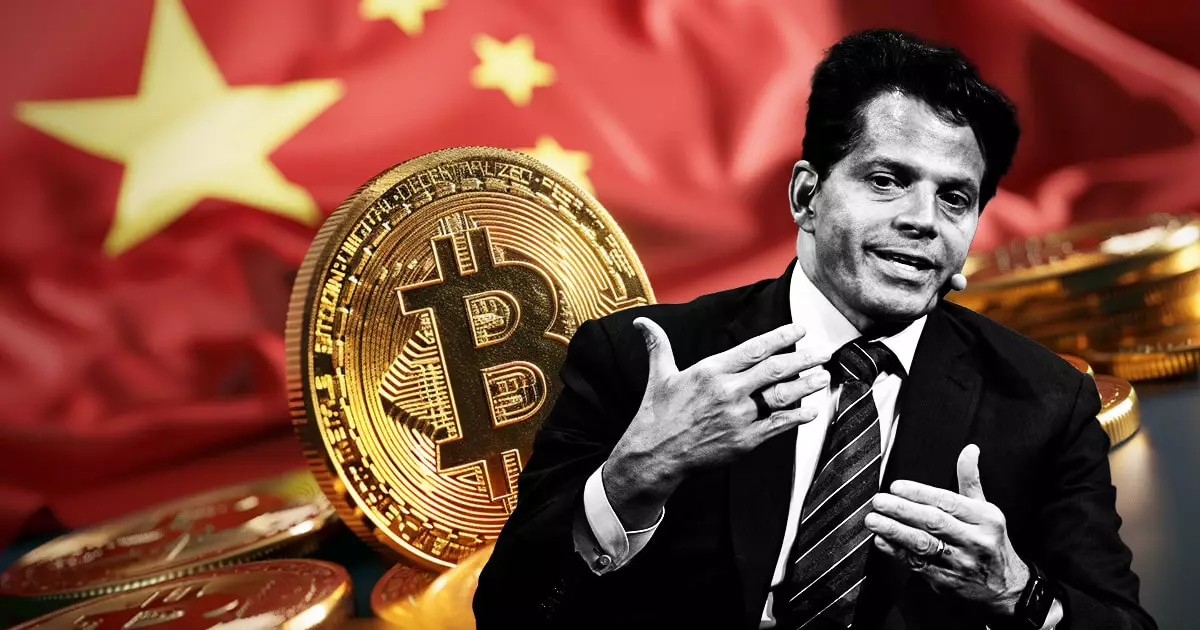The Bitcoin landscape is witnessing a renaissance of sorts, particularly with Anthony Scaramucci’s recent assertions regarding China’s potential re-entry into the Bitcoin mining arena and its integration into national reserves. During his address at the Bitcoin MENA 2024 conference, Scaramucci posited that, as the United States adopts a more accommodating attitude toward Bitcoin, the impetus on other nations, especially China, to re-evaluate their strategies regarding this cryptocurrency will intensify. He forecasts a scenario where, within a year, China will officially acknowledge Bitcoin within its reserves and resume legal mining activities—squarely reversing previous regulatory stances that severely curtailed its role.
This projection suggests a significant geopolitical shift, where the approaches nations take could largely pivot based on a comprehending understanding of Bitcoin’s strategic value. As we delve deeper into the implications of such moves, it becomes apparent that the global political landscape is approaching a critical juncture, one where Bitcoin may not merely be viewed as a speculative asset, but as a vital component of financial strategy in the geopolitics game.
The buzz around integrating Bitcoin into national financial frameworks is intensifying worldwide. Nations are increasingly examining the prospect of incorporating Bitcoin into their asset portfolios, not only as a means to diversify their holdings but also to insulate themselves from geopolitical tensions and economic sanctions. A compelling illustration of this trend is seen in Russia, where a lawmaker has put forth ideas for establishing a national Bitcoin reserve as a strategy to bolster economic stability and counter Western sanctions.
Moreover, Brazil is following suit, with proposed legislation that could pave the way for allocating a portion of its reserves to Bitcoin, amounting to an astonishing $18.6 billion. This decision aligns with a broader global inclination to utilize digital currencies to establish economic resilience in uncertain times. When considering the significance of such moves, one cannot overlook that the American government is also engaging in proactive discussions about formalizing its own Bitcoin reserves.
Scaramucci’s insights come at a pivotal moment, aligning with a renewed interest from the U.S. government to comprehend, retain, and even build its Bitcoin holdings. With past administrations, including President Donald Trump’s, showing a commitment to uphold Bitcoin laws, the prevailing sentiment is shifting from mere speculation to a calculated approach to managing Bitcoin as a strategic asset. Indicators such as Senator Cynthia Lummis’s legislative proposal, advocating for substantial Bitcoin acquisitions over several years, illustrate a long-term vision rather than one focused on short-lived market fluctuations.
Several U.S. states are also recognizing the potential of Bitcoin, with Pennsylvania’s initiatives to allocate state reserves to the cryptocurrency being a notable example. This growing interest has been mirrored by corporate titans, including influential asset managers like BlackRock, hinting at increased institutional endorsement of national Bitcoin reserves.
The Broader Picture: Financial Stability and Monetary Leadership
The period leading up to critical events such as the April 2024 Bitcoin halving and the November 2024 U.S. presidential election could herald significant market shifts. Historical patterns suggest that Bitcoin may experience substantial gains following such pivotal moments, reinforcing its perception as more than a mere speculative asset.
The Bitcoin Policy Institute has championed the establishment of a U.S. strategic Bitcoin reserve, arguing that it could enhance financial stability, encourage alignment with evolving energy needs, and solidify the U.S.’s position in global monetary leadership. Proponents assert that Bitcoin holds promise as a hedge against inflation and a device to circumvent economic sanctions, thereby enabling nations to assert greater financial independence.
However, the idea of strategic Bitcoin reserves is not without skepticism. Critics raise alarms over the inherent volatility that Bitcoin possesses and the risk of wealth redistribution from taxpayers to the wealthy Bitcoin holders. Despite these valid concerns, the growing institutional interest and government inquiries into large-scale Bitcoin integration into asset pools signal a transformative approach towards cryptocurrency at both national and global levels.
Anthony Scaramucci’s projections regarding the potential shift in China’s Bitcoin policy highlight the possible recalibration of geopolitical dynamics surrounding this digital asset. As various nations scrutinize and potentially embrace Bitcoin as a strategic reserve, the broader financial narrative evolves into one where acceptance of Bitcoin is increasingly defined not merely by its speculative appeal but also by its emerging role in national financial strategies. It is evident that in the evolving landscape of global finance, Bitcoin could soon occupy a pivotal place in the economic frameworks of nations worldwide, fundamentally altering the way countries engage with digital assets on the global stage.


Leave a Reply